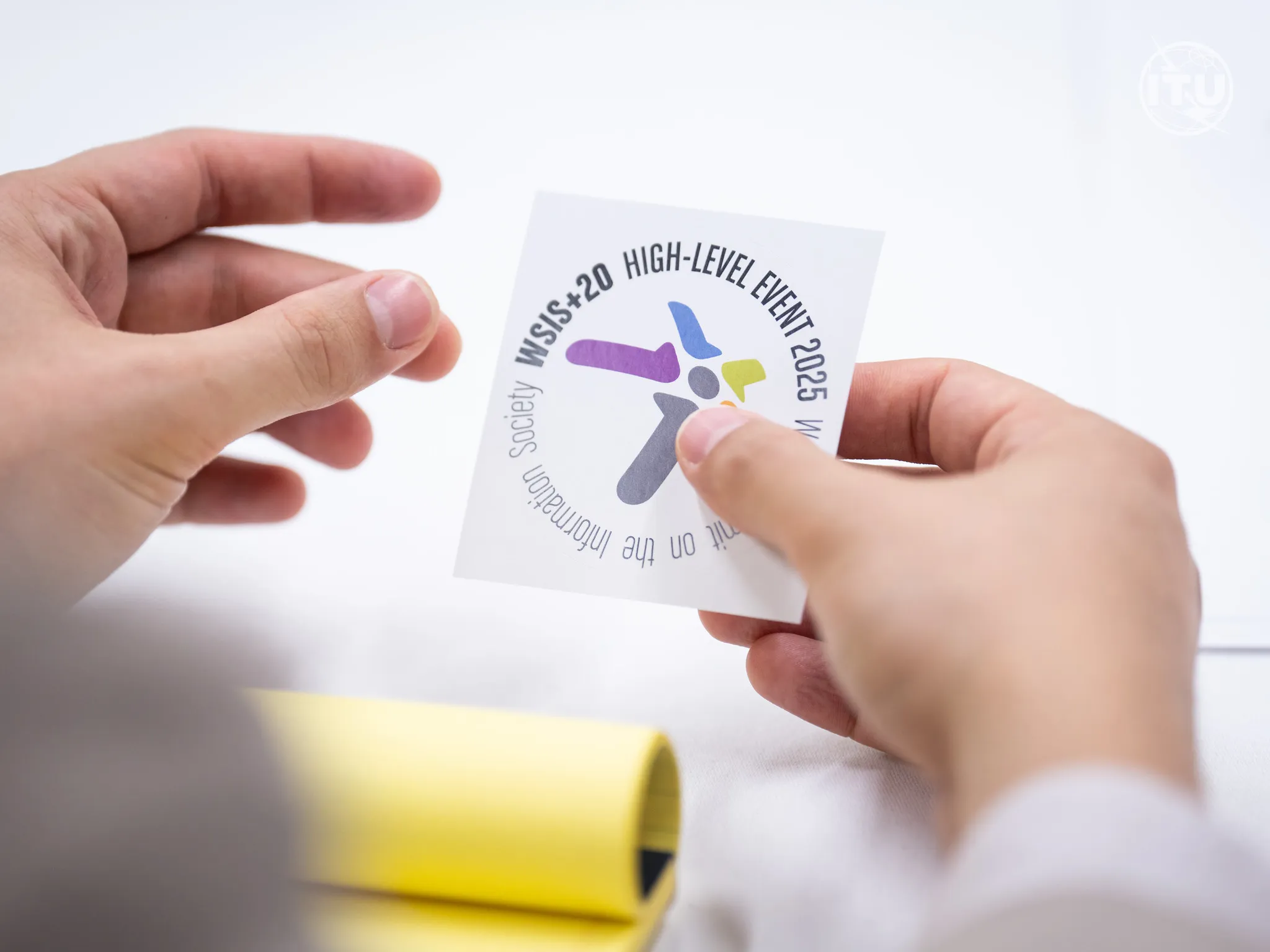What does World Summit on the Information Society (WSIS)+20 mean for democracy?

Since its inception, the WSIS has become a cornerstone of Internet governance, bringing together diverse perspectives about the future of the Internet. The ongoing WSIS+20 review is more than a bureaucratic milestone; it is a critical checkpoint for the future of the Internet. As the United Nations revises the rules governing digital technologies, ranging from AI infrastructure to cybercrime, the WSIS+20 process will play a pivotal role in shaping the future of the Internet. The review’s outcome will be relevant to the Internet’s trajectory toward either maintaining an open, multistakeholder, and democratic model or moving toward a more fragmented, state-centric system favoured by authoritarian powers.
The digital space has undergone drastic transformations since the initial framework and action lines of the WSIS were established. Digital technology, services, and information have become deeply embedded in our daily lives, and we have grown increasingly reliant on them. Developments in computer technology, the rise of artificial intelligence (AI), revised Internet protocols, enhanced digital infrastructure, pervasive Internet usage, and pioneering data applications are a few examples of how the Internet has revolutionized our societies. Breaking down the WSIS process and its decisions into accessible terms allows ordinary citizens to envision how the Internet could evolve and how those changes may impact their daily online experiences. The zero draft, a preliminary and unnegotiated text, was circulated in late August to give all stakeholders ample time to review the proposed changes and prepare their positions ahead of negotiations. Of course, questions on the level of influence that civil society can have remain.
A battleground for digital rights
A positive development in the WSIS+20 zero draft is the extent to which it embeds human rights and fundamental freedoms. The document refers to the Universal Declaration of Human Rights (UDHR) multiple times and aligns its workings with the Office of the High Commissioner for Human Rights (OHCHR). The zero draft clearly states the importance of protecting, respecting and promoting human rights and fundamental freedoms both online and offline.
The integration of strong human rights language in the zero draft is important due to the contemporary global erosion of freedom of expression and freedom of the press. International IDEA’s Global State of Democracy report affirms that:
“Declines were most common in Freedom of the Press, Freedom of Expression, Economic Equality and Access to Justice. The decline in Freedom of the Press, impacting nearly 25 per cent of countries, is the most widespread drop since the beginning of the data set in 1975. Approximately one in five countries also saw declines in Freedom of Expression (22% of countries).”
Governments are increasingly using digital tools to suppress journalistic freedoms in an attempt to silence the voices of dissent. Recent examples include Belarus, where the Lukashenko government has forcibly imprisoned or exiled journalists who oppose the government and suppressed all forms of media freedom. Such censorship has proven to be an effective weapon against democratic values. These principles, however, are fundamental to democracy and must be met with meaningful safeguards to halt the use of repressive digital mechanisms, such as Internet shutdowns, censorship, and mass surveillance, from being used. Efforts to reach consensus in the negotiations may result in a reduction of the strength of human rights language, especially amid increasing advocacy for sovereign digital governance frameworks. The weakening of these provisions could impact safeguards related to user safety, online privacy, and freedom of speech.
The growing advocacy for digital sovereignty has emerged as a significant and contested battleground in conversations about information societies. Digital sovereignty, also referred to as technological autonomy, has become a disputed concept. For some, it is a model of digital governance that aims to reduce reliance on foreign hardware, cloud providers and monopolized platforms. For others, it implies fragmenting digital technologies’ governance into nationally controlled islands where national governments can take decisions unilaterally on content, infrastructure and technical protocols.
While digital sovereignty is often framed as a strategy to bolster local control over digital infrastructure, it raises significant concerns about its impact on democratic rights online, such as privacy and freedom of expression. In recent years, more countries have shown growing interest in this model, influenced by major actors such as China and Russia. China favours a state-centric and cyber-sovereign approach to Internet governance, enabling tighter governmental control over citizens’ online activities while expanding the reach of its domestic IT industry, whereas Russia, with a similar approach, also promotes substituting foreign platforms with national alternatives and advocates for international rules that legitimize greater state control over information flows.
Although the term “sovereignty” may carry positive connotations, claims of digital sovereignty by these and other actors in the WSIS+20 process challenge the open Internet model, as the concept is often used to justify national control over digital governance for political or economic advantage. Ensuring that Internet governance remains inclusive, balanced, and guided by multistakeholder principles is therefore crucial to preserve openness, accessibility, and security, since a non-fragmented global Internet is a cornerstone of democracy and essential to the right to seek, receive, and impart information.
Championing collaboration as the path forward
Promoting the open Internet model requires constant collaboration between stakeholders, which the zero draft solidifies by establishing the permanence of the Internet Governance Forum (IGF). Rather than extending the IGF’s mandate for another decade, the current draft declares its permanent status. The IGF is a multistakeholder platform that enables dialogue on Internet governance policies and their implementation. The Forum acts as a bridge builder between the various stakeholders, thereby countering the fragmentation of Internet governance regulatory processes. Additionally, the IGF creates a space that enables the sharing of experience, knowledge, and technical expertise that includes civil society and technical actors. Many argue that inclusive stakeholder engagement is essential to ensuring that policy discussions are grounded in technical realities. In contrast to other processes where the term “multistakeholderism” has faded away as a mere formality not given due consideration by policymakers, the IGF has been called the world’s most inclusive platform for digital policy dialogue. The permanence of IGF guarantees a bottom-up approach to Internet governance that brings together diverse voices, from governments and businesses to civil society and individual users, in a collaborative, centralized platform. For ordinary citizens, multistakeholderism is crucial for including marginalized voices and reinforcing the human rights dimension of the draft. However, some have expressed concern that even if the IGF’s mandate is made permanent, there is still no mechanism to meaningfully integrate contributions into intergovernmental decision-making.
The effectiveness of the Forum as a multistakeholder platform is shaped by divergent national interests and agendas. The current geopolitical tensions further challenge consensus-building between different stakeholders. The WSIS+20 zero draft addresses issues relating to bridging digital divides and ensuring unhindered access to the Internet worldwide. The draft also promises to strengthen the inclusion of developing countries, particularly those in the Global South, in an effort to bridge the digital divide. Examples include the commitment to facilitating the Global South's engagement in the IGF and organizing AI research hubs and fellowship programs to build capacity on new and emerging technologies, such as AI.
As emerging technologies and AI grow at unprecedented levels, inclusive governance of them is essential to ensuring their secure and ethical use while allowing everyone to benefit from their opportunities and protecting everyone from their challenges. AI operates as a double-edged sword in the democratic context. Therefore, careful implementation is necessary while remaining aware of the repercussions that unsafe and unethical uses of AI can have on electoral integrity and democratic resilience. Despite the efforts to create an equal footing for all states, the global digital divide remains a primary barrier to achieving affordable and meaningful access to digital technologies. Global connectivity that comprises digital equity and inclusion is in everyone’s interest and would enable the safe and effective use of digital technologies.
Do these international negotiations affect the lives of ordinary citizens? The answer is an unequivocal yes. Although these processes may seem out of reach, their outcomes impact how we use and rely on ICTs daily and, consequently, the democratic principles on which our societies are founded. Thus, the WSIS process is essential to safeguarding the liberatory nature of the Internet and its governance. Safeguarding the multistakeholder model of the Internet is but one of myriad ways in which the influence of the WSIS process manifests itself in our daily lives.
The open consultations on the current zero draft are instrumental to the outcome document eventually adopted, and inclusion of civil society is fundamental. As in any UN process, language will be negotiated, and many states and stakeholders will seek to find a compromise acceptable to all that integrates different perspectives. Ultimately, the outcomes of the WSIS+20 review will shape the future of democratic digital governance. The WSIS+20 process will not only decide the future framework for governing the digital ecosystem but will also shape the trajectory of democracy in the interconnected world.
WSIS+20 presents a unique opportunity to strengthen and consolidate democratic values in the digital age by fostering global cooperation, embracing inclusive and transparent multistakeholder participation, and ensuring that the Internet remains open, rights-based, and accessible to all. The outcome of WSIS+20 will influence how societies uphold human rights, protect civic space, and reinforce accountability mechanisms across borders, laying the foundation for a digital future in which democratic ICT practices are not only preserved but also continuously renewed.
Disclaimer: Opinions expressed in this commentary are those of the authors and do not necessarily represent the institutional position of International IDEA, its Board of Advisers or its Council of Member States.




